A Generational Bond Between Liberator and Liberated
In April, Gail Cohn and Reuben Sloan were given the opportunity to tell their stories at the Hughston Society Meeting, held at the NIM, on the theme “Corresponding Angles.”
After 37 years with the Atlanta Journal-Constitution and now with the AJT, , Jaffe’s focus is lifestyle, art, dining, fashion, and community events with emphasis on Jewish movers and shakers.
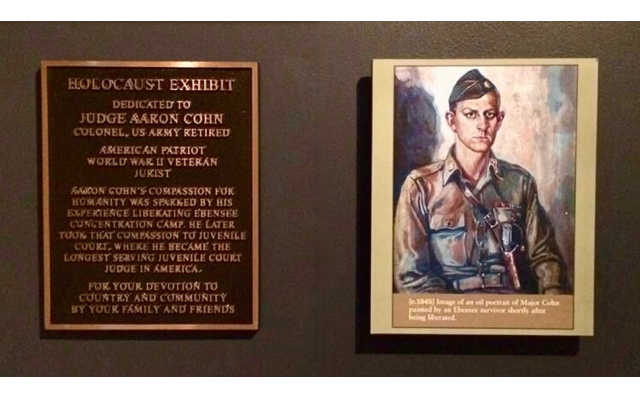
When former radio host and grandmother Gail Cohn went to an appointment with her orthopedist, Reuben Sloan, she told him that her father, a judge in Columbus, Ga., had recently died.
Since Sloan had completed his Sports Medicine Fellowship at the Hughston Clinic in Columbus, the two had a connection. “I asked about her dad, Judge Aaron Cohn,” Sloan recalled. “I knew him peripherally while I was practicing in Columbus in the mid-late-’90s.”
Cohn told Sloan that she was returning to Columbus to speak at the National Infantry Museum (NIM), adjacent to Ft. Benning. “She told me they were dedicating the Holocaust exhibit in the World War II section to her father,” Sloan says. “Puzzled, I asked, ‘Because he was a prominent Jewish figure in Columbus?’ And she replied, ‘No, he served in General Patton’s 3rd army, and liberated a subcamp of Mauthausen, called Ebensee.’”
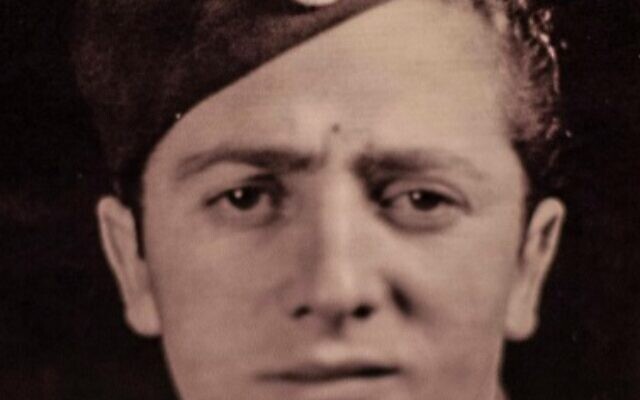
Stunned by the reply, Sloan revealed that his father was a Holocaust survivor; the only one in his family. He had been a prisoner in Mauthausen and was liberated by American soldiers. “Your father liberated my father!” he exclaimed. “We were both in tears in my exam room after realizing our profound connection.”
In April, Cohn and Sloan were given the opportunity to tell their stories at the Hughston Society Meeting, held at the NIM, on the theme “Corresponding Angles.” (The keynote presentation is typically about the speaker’s life experiences rather than medicine.)
“After writing and blending each of our father’s stories, Gail and I knew we had something truly extraordinary,” Sloan recalled. “I flew my family in from Los Angeles so they could be present. My wife, Debbie, and Gail’s husband, Harvey Danits, were also there.”
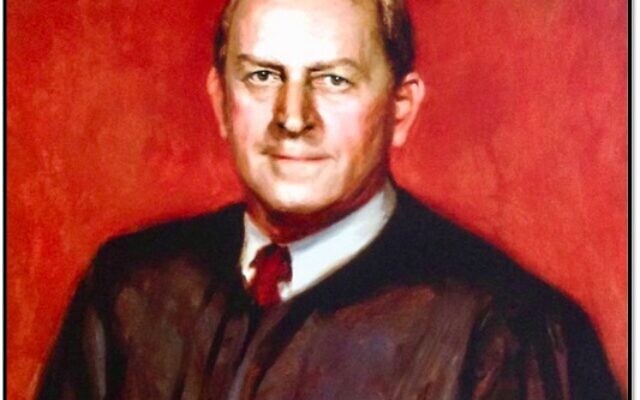
For his part of the presentation, Sloan cataloged the life of a young Polish Jewish boy, Icek Slodowski, from birth through the horrors of hard labor and the Holocaust — without disclosing that he was Sloan’s father (he changed his surname to Sloan in 1954, five years after immigrating to the U.S.).
Sloan went on to explain his connection to Cohn and how getting to know one’s patients can lead to incredible discoveries. “Needless to say, there wasn’t a dry eye in the audience,” he said. “Randomly, we delivered the presentation on the last day of Pesach, 22nd of Nissan, my father’s yahrzeit — begging the question, was it random or bashert? My father rarely if ever talked about that horribly dark time in his life. So, sadly there is so much I don’t know.”
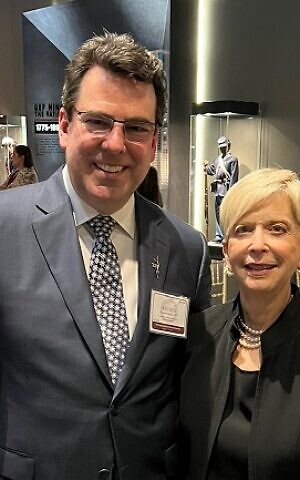
Cohn took the podium to complete the story. “At the time of the liberation of the camp in Ebensee, Austria, my father was a major and the combat operations officer of the 3rd Calvary Regiment, part of General George Patton’s 3rd armored division. He fought in four major European campaigns. I often speak about his life and the lessons of the Holocaust,” she said.
Judge Cohn’s bio is extensive. His experiences in World War II are set down largely in his book, “Memoirs of a First Generation American.” On book tours stops at churches and civic organizations, Gail Cohn would serve as her father’s interviewer.
“After his death, I knew it was my responsibility to continue to tell his story,” Cohn added. “I embrace this responsibility. I am my father’s daughter; I am his legacy, and now I am his voice. When the liberated victims learned that Aaron Cohn was Jewish, they tried to lift him on their weak and frail shoulders. It was an experience that shaped much of his life. Cohn was haunted by the death of 1,500,000 Jewish children who never had a chance at life.”
That unspeakable tragedy was the impetus for Cohn to become the longest-serving and oldest sitting Juvenile Court judge in America, sitting on the bench for 46 years and retiring at 95.
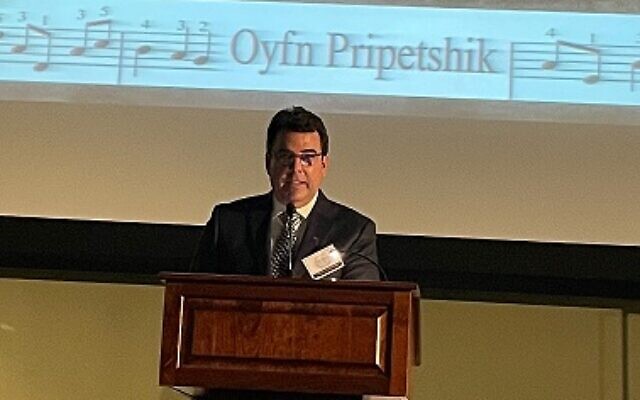
“Obviously the atrocities that he saw and Reuben’s father endured forever changed their lives,” Cohn said. “The manner in which my father took action against bigotry and hatred has influenced my life. … Telling his story and remembering history is a mandate for ‘Never Again!’”
The two plan to continue their emotional speaking journey, telling both sides of a tragically common Jewish story — Cohn as the daughter of a liberator and Sloan as the son of one who was liberated.
Link for digital version: https://youtu.be/6sAKVIdYbjE



comments